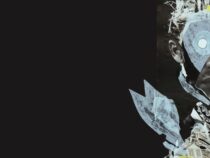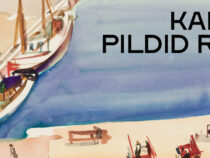05.11.2022–26.02.2023
On 5 November, the Tartu Art Museum will open the exhibition “Abundant Places. Wooden Architecture of Tartu in Art”, which highlights vibrant artworks depicting the wooden areas of Tartu. The exhibition includes both masterpieces from the 20th century and the newest works of contemporary authors.
Tartu is characterised by wooden neighbourhoods that surround the classicist Old Town in a tight circle. Although the wooden districts, with their lengthy and dramatic histories, have been somewhat glossed over by the history of architecture, their atmosphere has offered inspiration to artists for many decades.
One of the curators, Brita Karin Arnover, emphasises the relationship that wooden areas have had with art: “In the 20th century, the outskirts of Tartu were mostly depicted by artists associated with the Pallas Art School who arrived in town from the countryside. Wooden buildings on the edge of the town were logical and affordable places to live. The traditions of Pallas can still be seen in the townscapes of contemporary artists: the buildings are crooked, the sheds are worn down and the atmosphere of the bygone times is discernible. Changes are visible in the details: cobblestones, horse drawn carriages and inhabitants carrying heavy pails of water have disappeared.”
According to the director of the Tartu Art Museum and one of the co-curators, Joanna Hoffmann, it is crucial to study and analyse the local environment and cultural space and to capture the results in a book, exhibition or some other summary. “For us to continuously return to Tartu as a theme is also important: if we don’t do it then who will?” declares Hoffmann.
The exhibition is accompanied by a publication which functions as a separate and timeless compendium that will be available even after the pictures have been taken down. It contains an overview by the art historian and curator Brita Karin Arnover which talks about the nature of wooden architecture in Tartu and its expressions in art, an essay by the town architect Tõnis Arjus covering the past and the future of the wooden areas of Tartu, an atmospheric short story, “Evening in an Old House”, by Mehis Heinsaar, and a selection of reproductions of artworks depicting the wooden neighbourhoods of Tartu.
Curators: Brita Karin Arnover and Joanna Hoffmann
Exhibition design and graphic design: Aadam Kaarma
Co-ordinator: Kristlyn Liier
Exhibition team: Richard Adang, Nele Ambos, Tanel Asmer, Maarika Espenberg, Indrek Grigor, Mare Joonsalu, Margus Joonsalu, Jaanika Kuznetsova, Katrin Lõoke, Julia Polujanenkova, Kristel Sibul, Anti Saar, Peeter Talvistu, Kristo Tamm, Ago Teedema, Urmo Teekivi and Mae Variksoo
Lenders of the works: Art Museum of Estonia, E-Kunstisalong Art Salon, Estonian National Museum, National Archives of Estonia, Tartu Art Museum, Tartu City Museum, Peeter Krosmann, Enn Kunila, Maria Lang, Enn Lillemets, Marko Mäetamm, Margus Punab, Kristel Sergo, Sashami and Malev Toom
Artists: Adamson-Eric, Ellinor Aiki, Albert Anni, Peet Aren, Valve Janov, Andrus Johani, Albert Kesner, Elmar Kits, Linda Kits-Mägi, Alfred Kongo, Peeter Krosmann, Nikolai Kummits, Eduard Kutsar, Kaja Kärner, Marie Lekstein, Kaarel Liimand, Eduard Maaser, Marko Mäetamm, Ella Mätik, Aleksander Mülber, Villem Ormisson, Varmo Pirk, Ferdi Sannamees, Sashami, Kristel Sergo, Imat Suumann, Kristjan Teder, Malev Toom, Albert Toomapoeg, Salome Trei, Lüüdia Vallimäe-Mark, Aleksander Vardi, Heldur Viires, Johannes Võerahansu, Eduard Wiiralt
The exhibition is supported by the Cultural Endowment of Estonia.
“Abundant Places. Wooden Architecture of Tartu in Art” exhibition booklet
Exhibition views
Photos: Madis Palm











